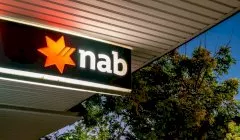Invest
Voters say reducing the cost of living should be the government’s top priority
Invest
Voters say reducing the cost of living should be the government’s top priority
Aussies have ranked high cost of living as the top issue that needs to be addressed by the next government.
Voters say reducing the cost of living should be the government’s top priority
Aussies have ranked high cost of living as the top issue that needs to be addressed by the next government.

About 64.7 per cent of Aussie voters believe that the government should make reducing the cost of living a top priority, new research from The Australian National University (ANU) has revealed.
The high cost of living outranked all other major policy considerations for the over 3,500 voters surveyed by the university, study co-author Professor Nicholas Biddle said.
“Interestingly, we also found that this was a view held by people who said they would vote for Labor, for people who said they would vote for the Coalition, and for those who weren't planning on voting for either party,” he noted.
“For Coalition voters, 60.8 per cent said this was the highest priority. Among Labor voters it was even higher, with 68.8 per cent saying the same.”

The findings follow a spike in inflation reported by the Australian Bureau of Statistics, with a 2.1 per cent increase for the consumer price index in the March quarter which took the annual rate of inflation to 5.1 per cent.
Fixing the aged care system was seen as the second highest priority by all voters (60.1 per cent) followed by strengthening the nation’s economy (54.4 per cent), reducing the cost of health care (53.5 per cent) and dealing with global climate change (52.8 per cent).
Only 36.6 per cent of Aussies believed that dealing with the outbreak of COVID-19 should be a top priority for the government.
The lowest priorities for Aussies included dealing with immigration (22.3 per cent), addressing issues around race (24.8 per cent), dealing with drug addiction (26.6 per cent) and reducing the budget deficit (27.2 per cent).
With the election less than two weeks away, ANU’s research also looked at the voting intentions of the Australian population.
“We found that there wasn't any significant change in the number of people who said they would vote for the Coalition - 31.2 per cent in April compared to 31.7 per cent in January," said Mr Biddle.
"We also found [that] there was also a small drop in the number of people who said they'd vote for Labor, with 34.3 per cent saying they would in April compared to 36.3 per cent in January.”

Spending
Household Spending Pops, Rate Hike Looms: A CFO Playbook from an Australian Retail Case
Fresh ABS data shows household outlays running hotter than expected, particularly in services—stoking calls for an RBA move as early as February. For operators, the macro headline is simple; the ...Read more

Spending
State Street economist comments on softer-than-expected CPI data
In light of the latest Consumer Price Index (CPI) data release, Krishna Bhimavarapu, APAC Economist at State Street Investment Management, has provided insight into the implications for the Australian ...Read more

Spending
Moneysmart study reveals Gen Z women more concerned about finances than men
A new research conducted by ASIC’s Moneysmart has unveiled the heightened levels of stress and concern regarding finances and the cost of living among Australian Gen Z women compared to their male ...Read more

Spending
The cost of politeness: Aussies out of pocket by $1,350 due to 'awkward tax'
It's the time of year when Australians dive into their pockets for festive events and gatherings, yet a recent study by PayPal suggests that many are too polite, or perhaps too embarrassed, to ask for ...Read more

Spending
Aussies can ‘NAB Now Pay Later’ with the last major bank to embrace BNPL
NAB has become the latest bank to enter the BNPL market. Read more

Spending
Aussie households spent $368 a week on transport after petrol price surge
Fuel costs have increased by 40 per cent over the past year, a new report from the Australian Automobile Association has revealed. Read more

Spending
Bodies back Labor’s commitment to stronger BNPL regulation
All parties should commit to stronger regulations for the BNPL sector, according to Financial Counselling Australia. Read more

Spending
Household spending surges led by retail and recreation
Spending on retail, recreation and hospitality have continued to climb as COVID-19 case numbers and restrictions have eased. Read more

Spending
Household Spending Pops, Rate Hike Looms: A CFO Playbook from an Australian Retail Case
Fresh ABS data shows household outlays running hotter than expected, particularly in services—stoking calls for an RBA move as early as February. For operators, the macro headline is simple; the ...Read more

Spending
State Street economist comments on softer-than-expected CPI data
In light of the latest Consumer Price Index (CPI) data release, Krishna Bhimavarapu, APAC Economist at State Street Investment Management, has provided insight into the implications for the Australian ...Read more

Spending
Moneysmart study reveals Gen Z women more concerned about finances than men
A new research conducted by ASIC’s Moneysmart has unveiled the heightened levels of stress and concern regarding finances and the cost of living among Australian Gen Z women compared to their male ...Read more

Spending
The cost of politeness: Aussies out of pocket by $1,350 due to 'awkward tax'
It's the time of year when Australians dive into their pockets for festive events and gatherings, yet a recent study by PayPal suggests that many are too polite, or perhaps too embarrassed, to ask for ...Read more

Spending
Aussies can ‘NAB Now Pay Later’ with the last major bank to embrace BNPL
NAB has become the latest bank to enter the BNPL market. Read more

Spending
Aussie households spent $368 a week on transport after petrol price surge
Fuel costs have increased by 40 per cent over the past year, a new report from the Australian Automobile Association has revealed. Read more

Spending
Bodies back Labor’s commitment to stronger BNPL regulation
All parties should commit to stronger regulations for the BNPL sector, according to Financial Counselling Australia. Read more

Spending
Household spending surges led by retail and recreation
Spending on retail, recreation and hospitality have continued to climb as COVID-19 case numbers and restrictions have eased. Read more








